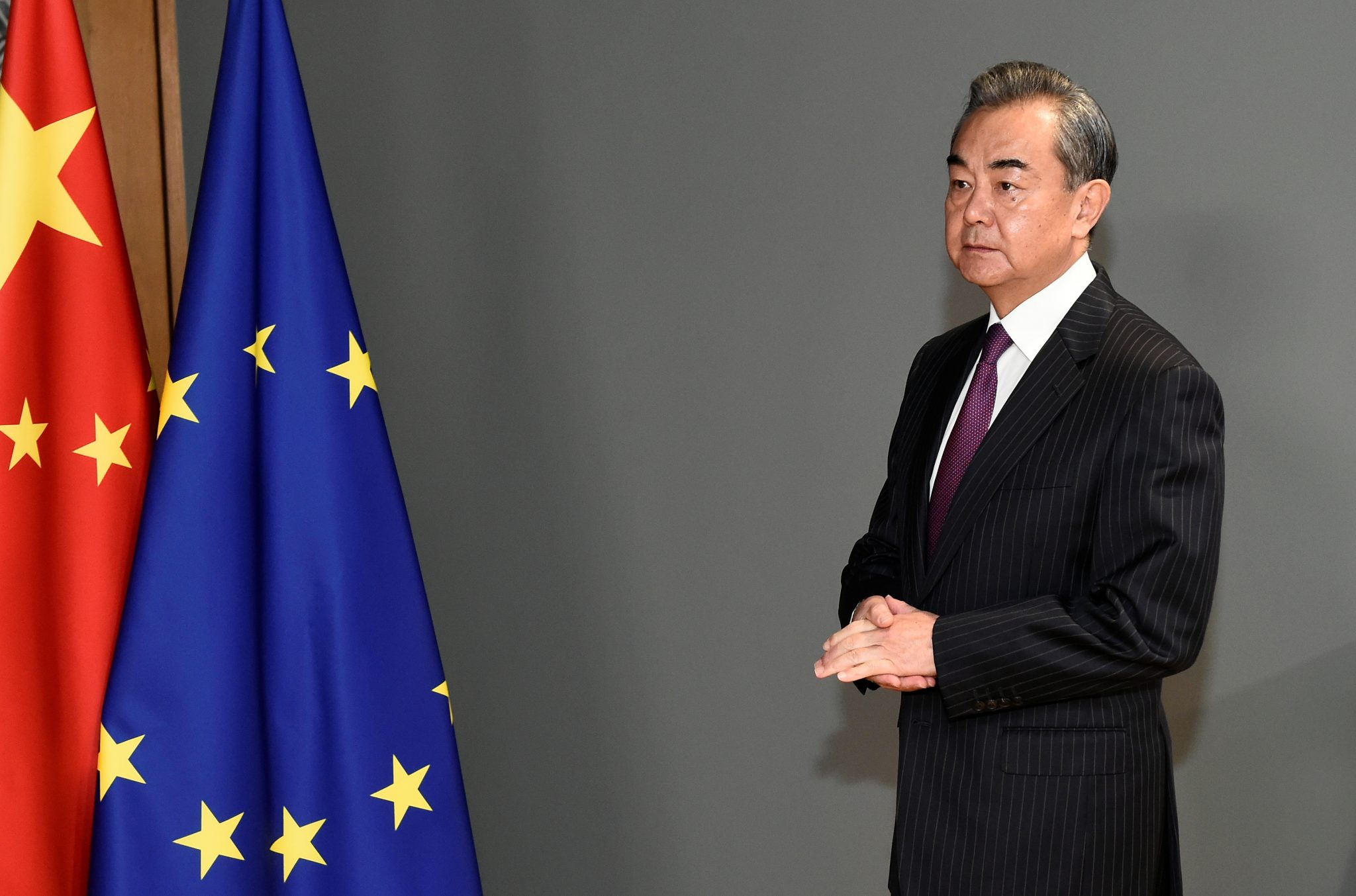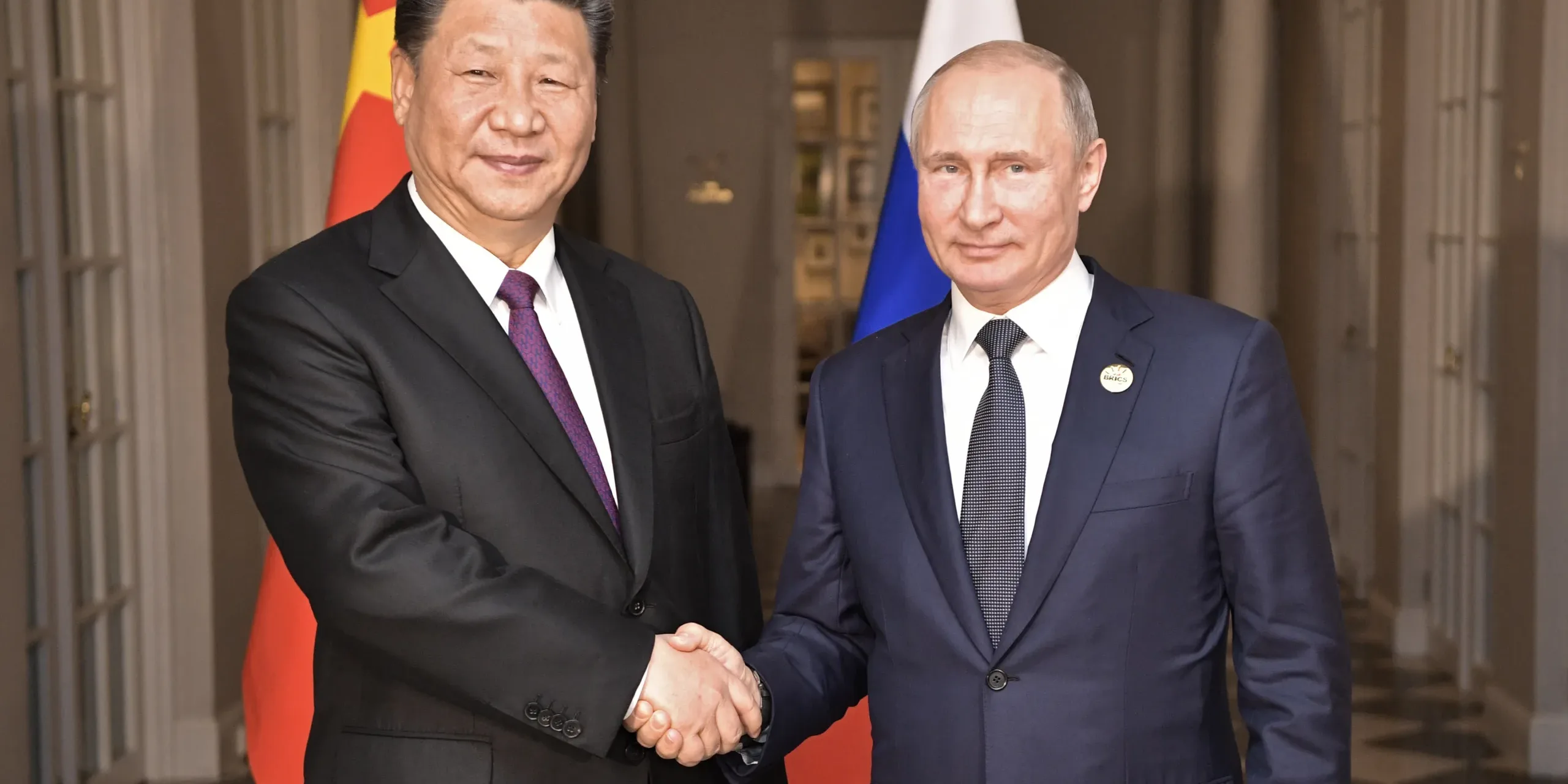China’s bid to position itself as peacemaker in Europe
China’s recent attempt to position itself as a mediator in the Ukraine conflict came in the form of a 12-point, 892-word “position paper” published by the Chinese foreign ministry. The proposal emphasized avoiding military escalation and encouraging dialogue, but it did not refer to the conflict as a war, instead describing it as the “Ukraine crisis.”
EU and NATO officials were quick to criticize the proposal, citing concerns about China’s credibility and potential ties to Russia. Nabila Massrali, the EU’s foreign policy spokeswoman, stated that “China’s position builds on a misplaced focus on the so-called ‘legitimate security interests and concerns’ of parties, implying a justification for Russia’s illegal invasion, and blurring the roles of the aggressor and the aggressed.”
Join the Movement for a Stronger Europe
Welcome to Forward Europe, a political party committed to the rise of Europe as a force for good in the world.
Please sign up for our weekly newsletter and stay informed about the latest developments in the fight for a sovereign Europe.
Together, we can make a difference.
Subscribe now!
Ursula von der Leyen, president of the European Commission, went further, stating that China’s stance was anything but neutral. She pointed to China’s close relationship with Russia, which includes a recent “unlimited friendship right” signed just before Russia’s invasion of Ukraine. According to von der Leyen, this relationship means that “China has taken sides.”
NATO Secretary-General Jens Stoltenberg echoed these concerns, stating that China “doesn’t have much credibility” and has not been able to condemn Russia’s illegal invasion of Ukraine. He also warned that there have been “signs and indications that China may be planning and considering to supply military aid to Russia.”
These criticisms reflect a growing concern about China’s expanding influence in Europe, particularly in light of its close relationship with Russia. As a key strategic ally of Russia, China is seen by many in the West as a potential source of support for Russia’s aggression in Ukraine. This has raised questions about China’s ability to act as a neutral mediator in the conflict, and has led to concerns about the broader implications of China’s increasing influence in Europe.
Risks of China’s increasing influence in Europe
China’s expanding presence in Europe poses several risks to the region’s security and foreign policy. Most notably, China’s close relationship with Russia could enable Russia to expand its influence in Europe. This could undermine the EU’s ability to act as a mediator in conflicts like the one in Ukraine. Furthermore, China’s growing economic power in Europe could give it leverage over EU member states, potentially allowing it to influence policy decisions that are not in the best interests of the EU as a whole.
In addition, there are concerns about China’s lack of credibility in Western diplomatic circles. NATO Secretary-General Jens Stoltenberg has questioned China’s credibility, stating that it “doesn’t have much credibility” in the context of the Ukraine conflict. This lack of credibility could further undermine China’s ability to act as a mediator in conflicts in Europe.

Moreover, China’s expansionist ambitions and willingness to use economic leverage to achieve its strategic goals could pose a threat to Europe’s security. As China seeks to expand its influence globally, it has been known to use its economic power to gain influence over other countries. This could include buying strategic assets, investing in infrastructure, or offering loans to countries in exchange for political influence.
Forward Europe’s vision for European security
As a party committed to uniting Europe into a sovereign political entity, Forward Europe recognizes the risks posed by China’s increasing influence in Europe. We are committed to working with our traditional Western allies to ensure the security and prosperity of the EU. We believe that maintaining transatlantic unity is crucial to achieving this goal, particularly in the face of geopolitical threats like Russia’s aggression and China’s expansionist ambitions.
Furthermore, we believe that the EU must take a proactive approach to addressing these threats. We must be willing to invest in our own security and take steps to counteract any attempts to undermine our sovereignty. This includes investing in our military capabilities, developing our energy potential, and strengthening our cybersecurity posture.
Finally, we believe that the EU must take a firm stance against any attempts to interfere in our political affairs or undermine our sovereignty. We must be willing to call out any attempts to manipulate our political systems or use economic leverage to influence our policies.
In conclusion, China’s attempts to position itself as a mediator in the Ukraine conflict raise concerns about its increasing influence in Europe. As a party committed to the sovereignty and security of the EU, Forward Europe recognizes the need for greater transatlantic unity and a proactive approach to addressing geopolitical threats. When elected to the European Parliament, we will work to ensure that the EU takes a firm stance against any attempts to undermine our sovereignty and security. We will invest in our military capabilities, energy potential, and cybersecurity posture to protect the EU from threats both foreign and domestic. Only by working together with our traditional Western allies can we ensure a secure and prosperous future for the EU.






